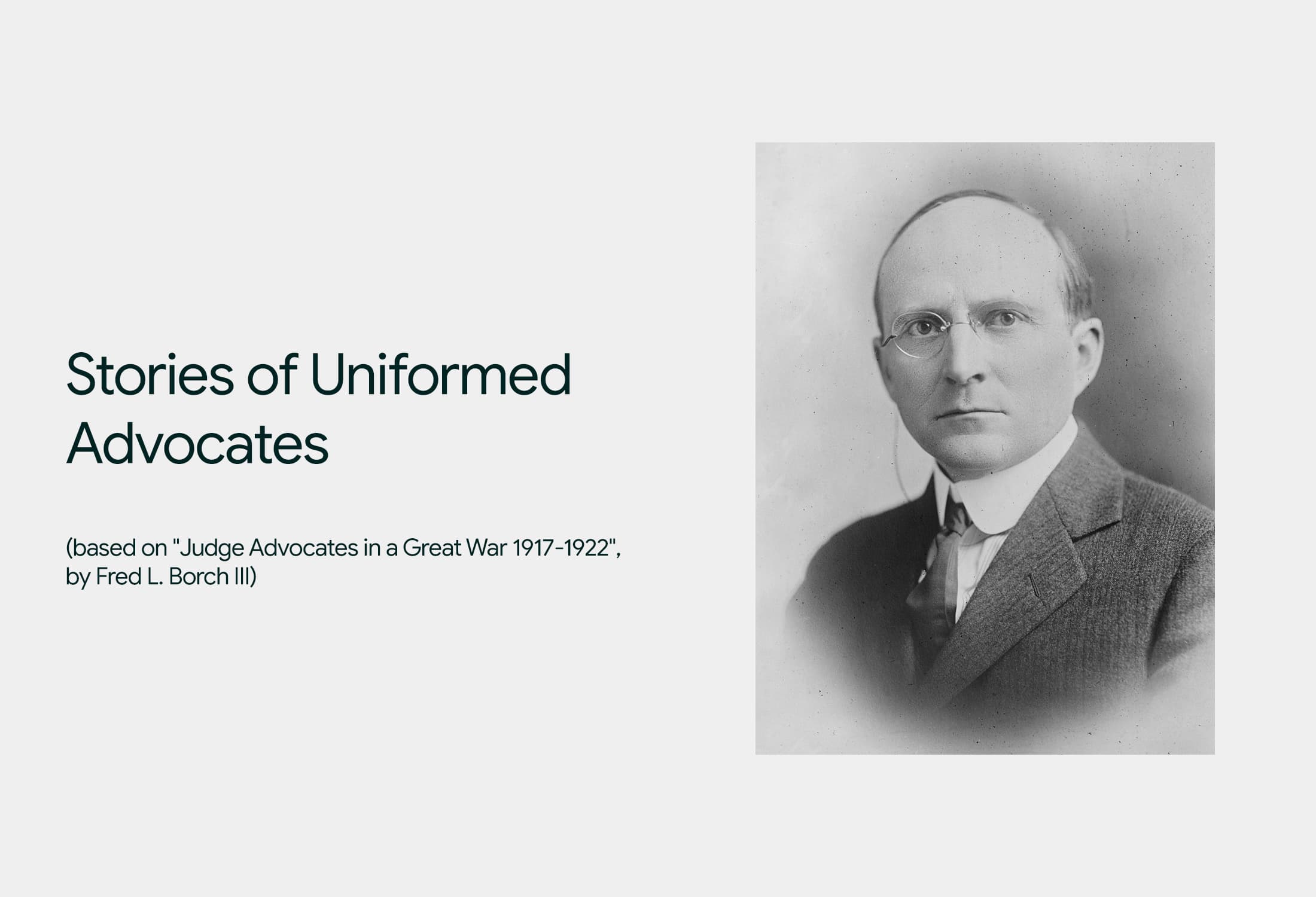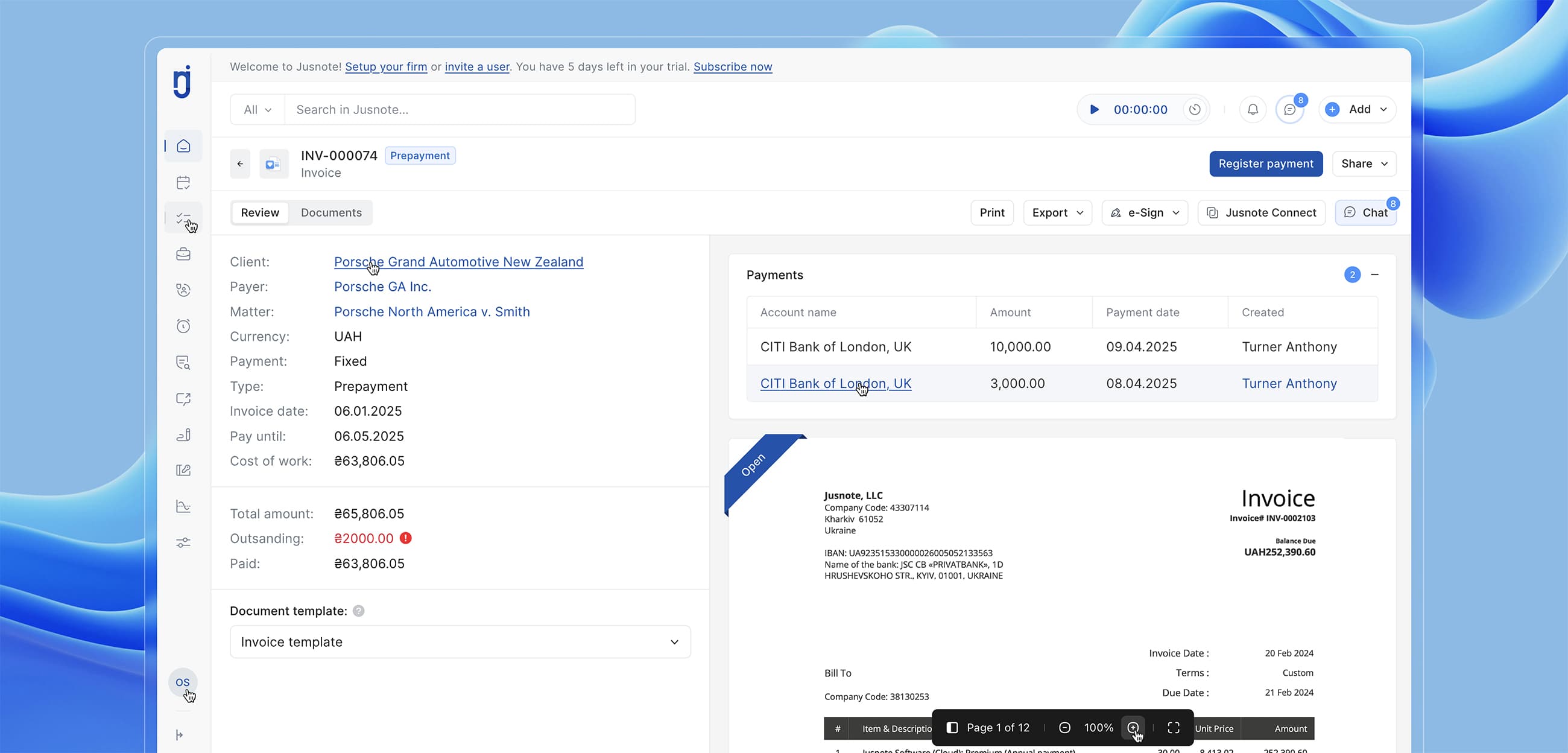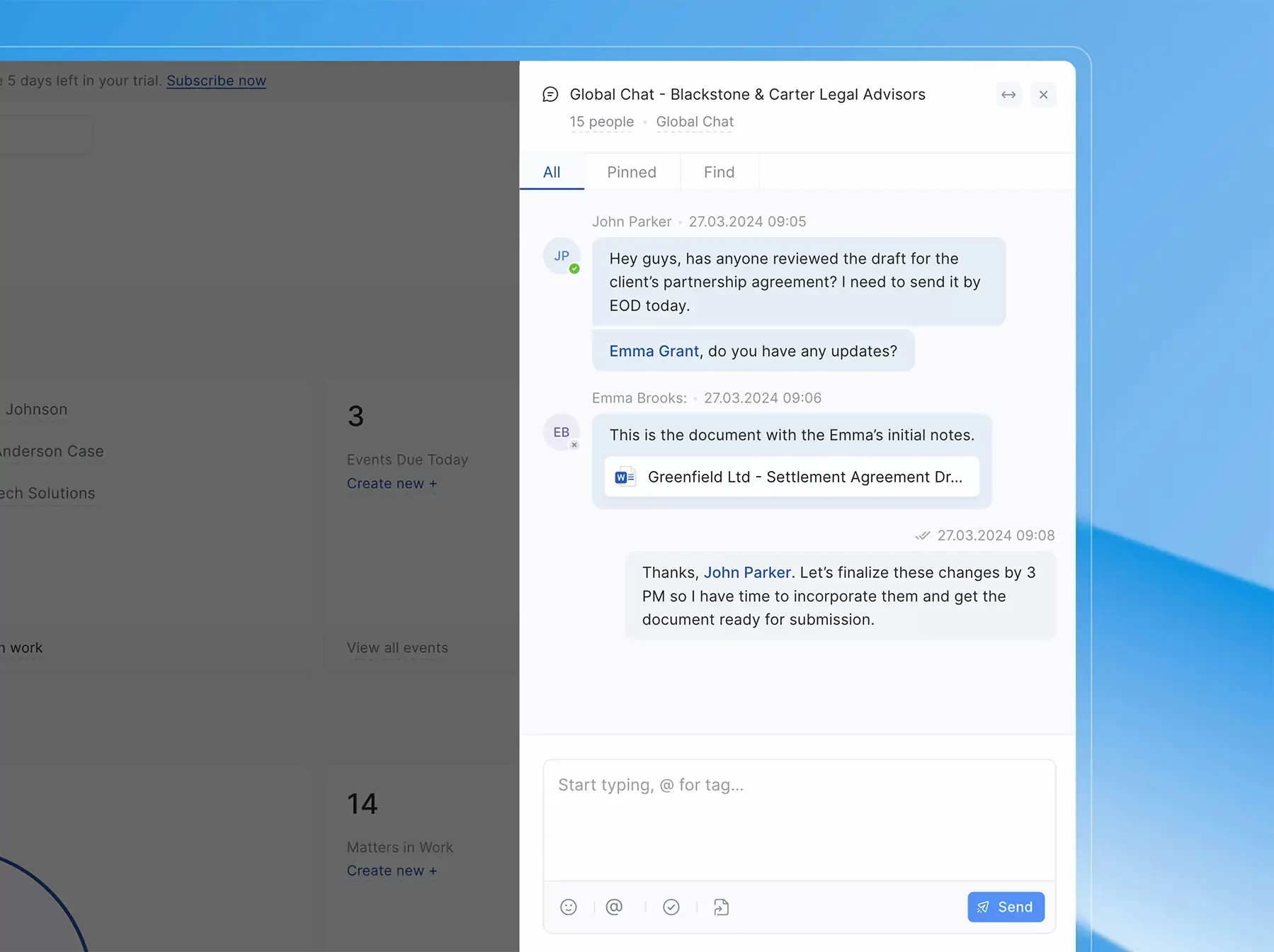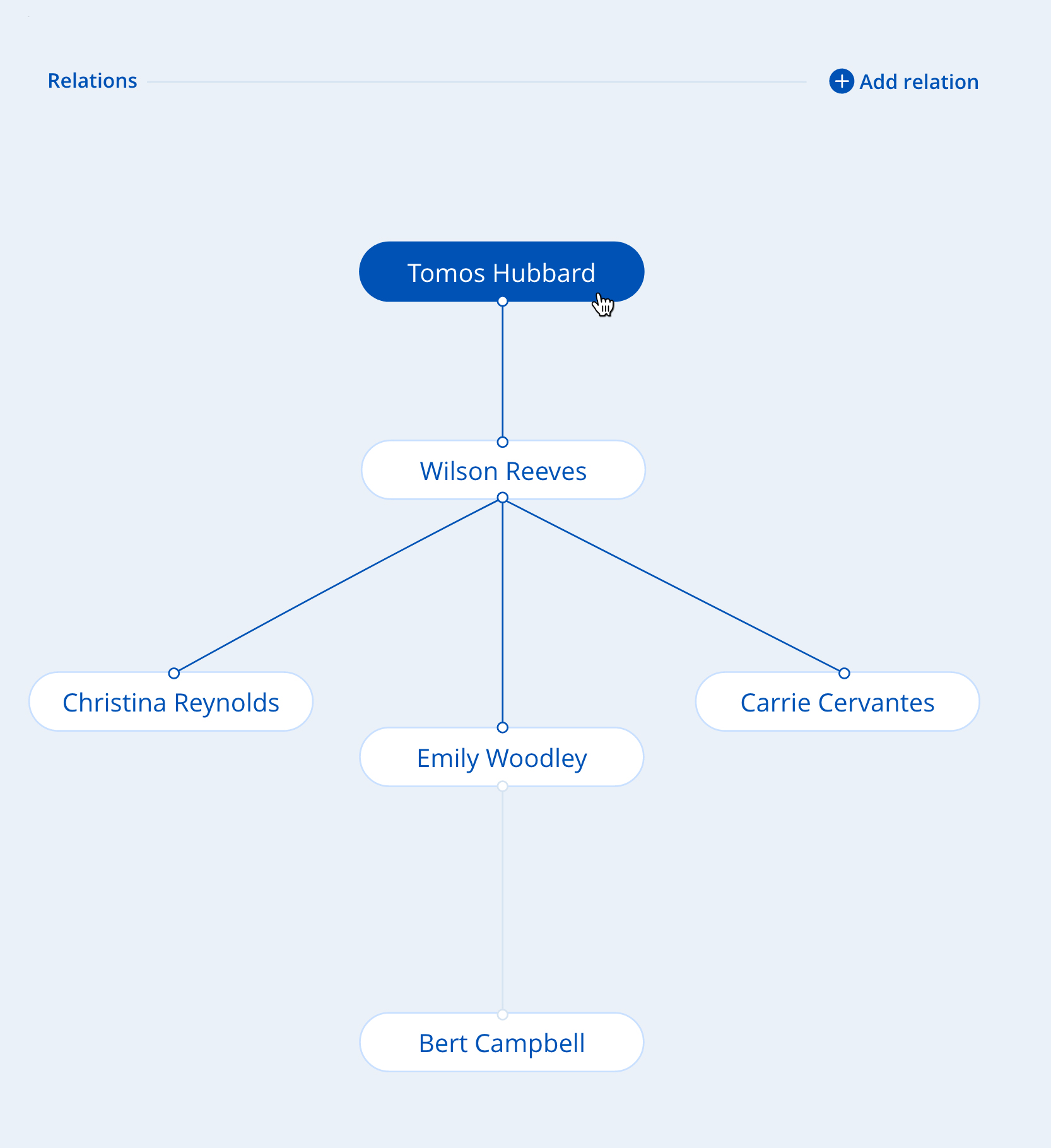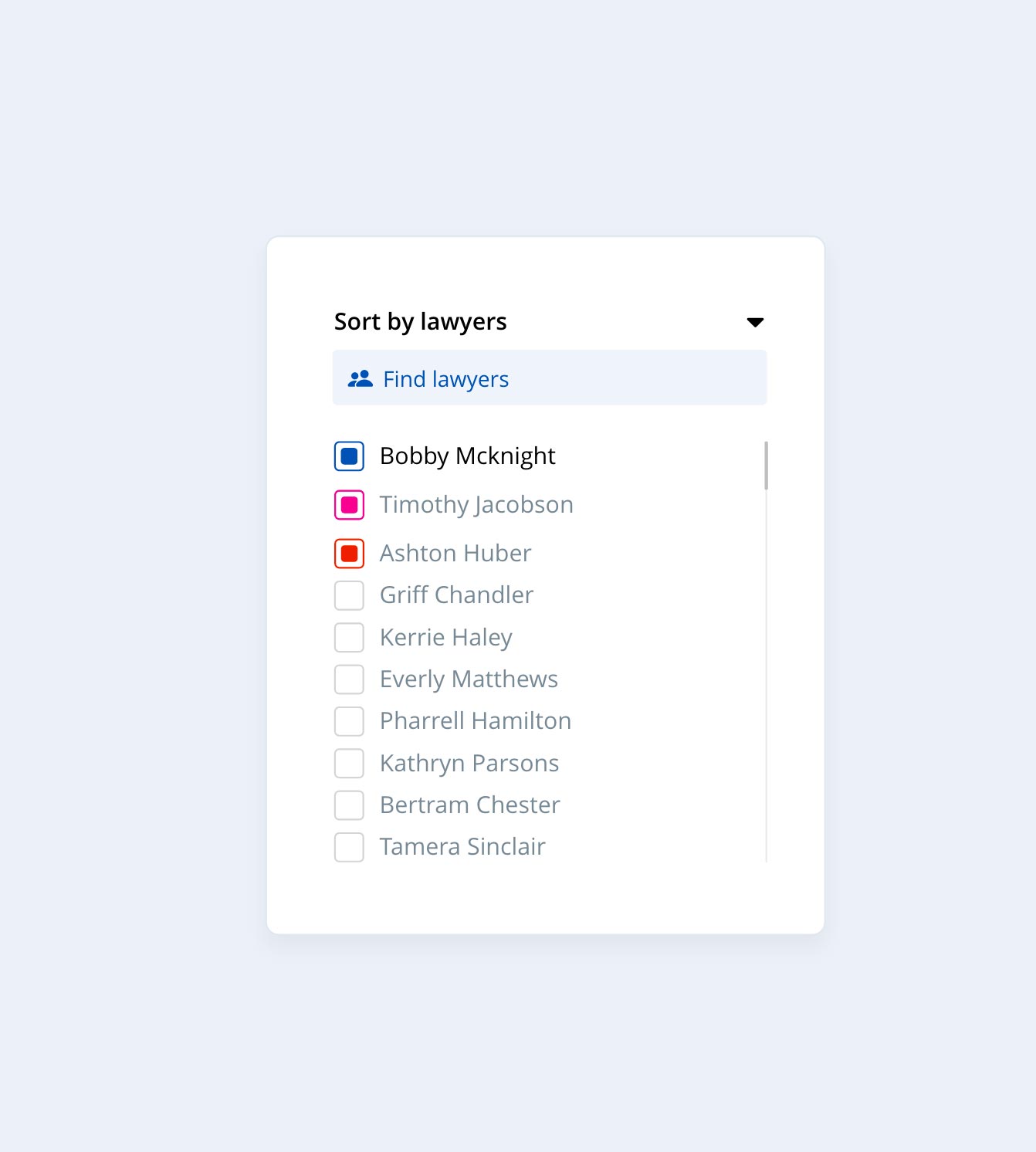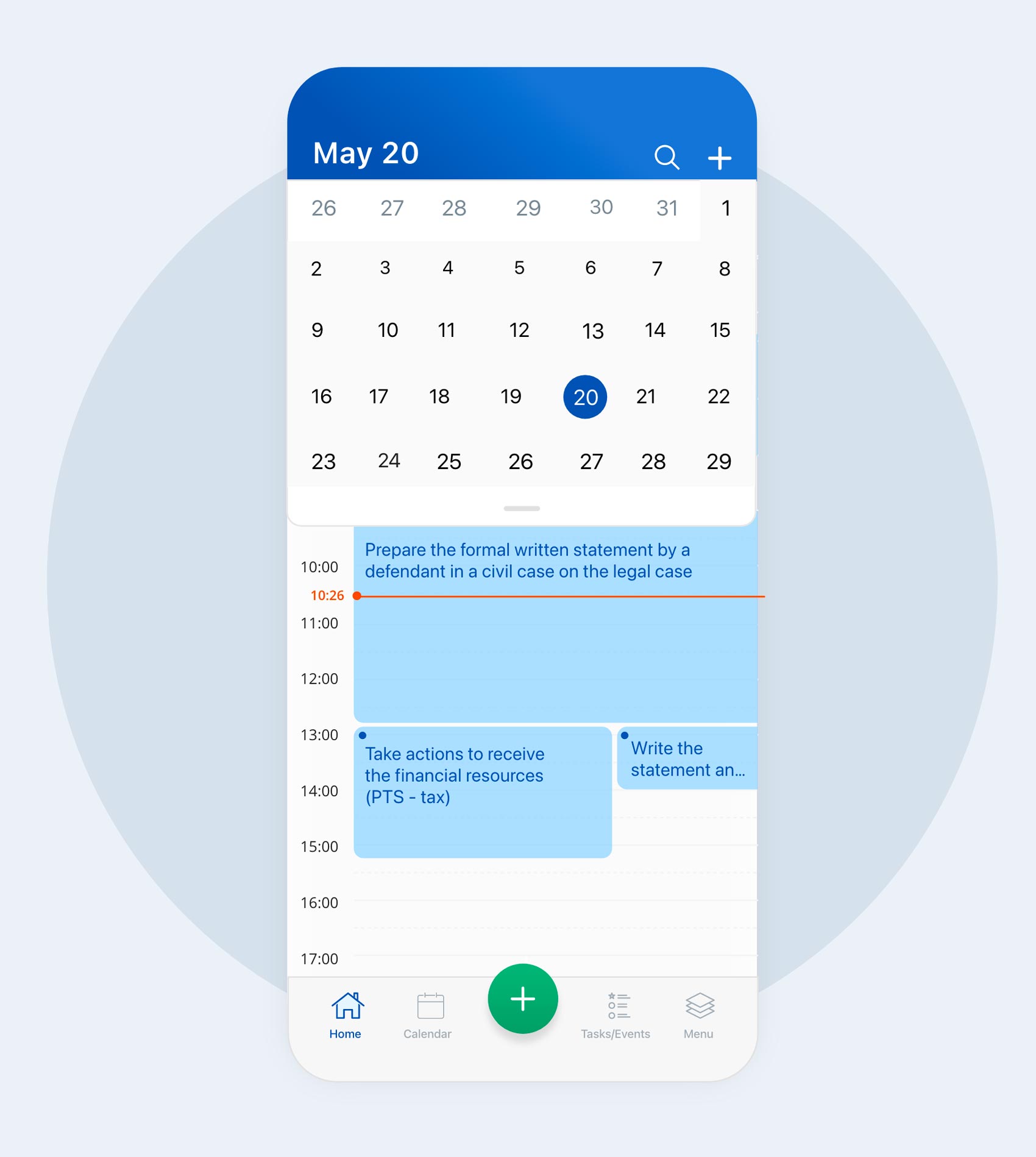BLOG
May 3, 2022
Stories of Uniformed Advocates (based on “Judge Advocates in a Great War 1917-1922”, by Fred L. Borch III)
The book we based this article on contains an array of personal experiences of our legal ancestors who made their way through running civil legal practice into the gruesome days of uncertainty and war whose heritage we carry now. The period when 50,000 soldiers died during the Spanish influenza pandemic while the country mobilized and prepared for an impending crisis.
The intensification of the American Army in the wake of Congress’s declaration of war on the Central Powers led to a further expansion in uniformed legal professionals attempting to support the recently completed division-based force. On June 17, 1917, after two months left since American entry into the conflict, the War Department reported that twenty civilian attorneys had been commissioned to be judge advocates (added to the existing seventeenth that was there since the onset of World War I). These attorneys were “assigned to a division of the Army”, and “all they would be Majors on the staff of the Judge Advocate General in the field (JAGD)”.
Army lawyers were accepted as part of the fighting force alongside soldiers, medical officers, and other military men. In fact, only half of them were sent to Europe and joined the armed forces, while the rest of the JAGD advocates stayed in the U.S. and continued to serve the country in all feasible ways.
To illustrate, these are some biographical facts of judge lawyers who served in the Department of World War I and some of their prominent achievements taken from a questionnaire of 1919. As law professionals, we may learn much from the past and history and apply this knowledge to become successful lawyers.
In January 1918, John Baker White was employed in England as the Judge Advocate (Base Section No. 3, American Troops in England). He started his law practice in a law firm in Charleston, West Virginia, and then passed the Bar Exam Admissions administered by the Supreme Court of Appeals to pursue a legal career.
When he stepped into his fifth decade, White appeared to be one of the most senior Army Lawyers in England. In the following years, he worked inside the British administrative system, contributing to preparing laws for the U.S. to give its troops criminal jurisdiction. Furthermore, White turned out to be the chief author of the law called “Discipline of Forces of Her Majesty’s Allies in the United Kingdom”. That meant, in simple words, if U.S. military law permitted the Army to sue soldiers based in the United Kingdom, the British authorities had no protest.
In practical terms, any non-U.S. resident could be a witness and give evidence of any U.S. military criminal procedure. This law helped maintain order and discipline among U.S. troops in England. White’s law became a crucial legal action since it permitted foreign military courts to rule in civil and criminal procedures.
Alva Blanchard Adams served in the JAGD from 1918 to 1919. When he returned home, Alva renewed his law practice and soon became the first Colorado senator who had been born there. What’s more, the Rocky Mountain National Park was named in honor of Alva Blanchard Adams. This tunnel is part of the transmountain diversion of water in Colorado, the so-called “Colorado-Big Thompson Project”.
Nathaniel Berners Barnwell had run a private law practice until 1913 and then entered the firm of Whaley, Barnwell, & Grimball. Before joining the Army in April 1917, he served one term in the South Carolina council, particularly on the Judiciary Committee.
When the war began, he was enlisted as a major in the Judge Advocate General’s Department. Nathaniel came back to the United States in August and demobilized in February 1920, continuing his law career working in a law firm, which eventually was renamed Barnwell & Whaley.
Nathaniel Berners Barnwell was also vice president of the Charleston Library Society, ahead of the Chamber of Commerce, a director, and vice president of the South Carolina Historical Society. And from 1933 to 1950 — Chancellor of the Diocese of South Carolina.
During World War I, Keedy Edwin Roulette was a member of the newly assembled Board of Review, which investigated courts-martial as to the validity and legal sufficiency. During World War II, he operated as Chairman of the Selective Service Board of Appeals.
An internationally recognized scholar, actively involved in criminal law and criminal procedure, he was a joint author of the Code of Criminal Procedure for the American Law Institute (1924-1929). Besides, Keedy was elected president of the American Institute of Criminal Law in 1924 and the International Law Association in 1929.
Charles Beecher Warren was a remarkable lawyer with exceptional diplomatic skills and professionalism. He was a representative of the United States as associate counsel in court hearings before entering the Bering Sea dispute with the United Kingdom.
After World War I, Warren performed as the legal advisor to the American delegation at the Paris Peace Conference. In 1921 he was appointed U.S. Ambassador to Japan during Warren G. Harding’s presidency. Later on, in 1942, he also became U.S. Ambassador to Mexico.
Beyond a doubt, great storytelling allows us to learn from more personal stories of lawyers in the JAGD. You can get insight into the advocate practice from various angles as well as into changes made to military law during the last decades.
Contact the Jusnote team to discover more ways to augment and manage your legal practice now and take it to the next level.
![]()
Elena Ivanenko
Author, Content Creator at Jusnote



 Jusnote Newsroom
Jusnote Newsroom  Search Newsroom
Search Newsroom
 Back to all publications
Back to all publications
